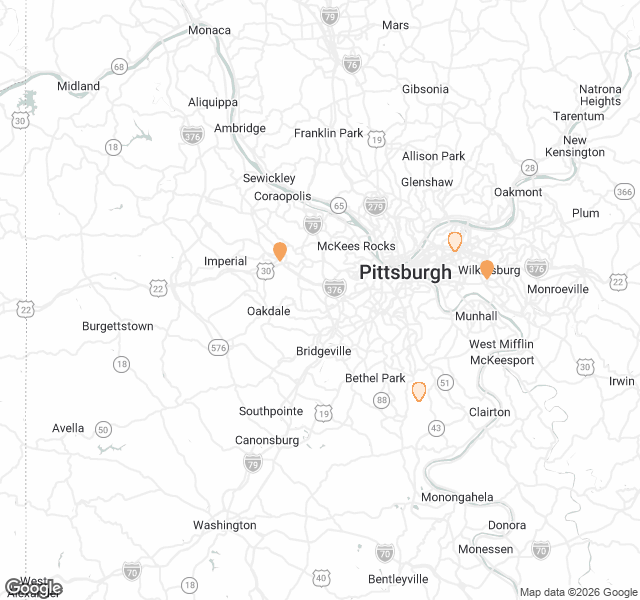Explore fill dirt posts in Pittsburgh across free fill dirt, dirt for sale, fill dirt wanted, topsoil, and dumpsites & disposal.

Pittsburgh members have:
100 yards of dirt available and 318 yards of dirt wanted.
How DirtMatch Works
Create a FREE Post
If you have excess dirt or fill, we'll match you with others in your area who need it. If you need dirt, we’ll match you with others who have dirt nearby. It’s that simple.
Connect with Matches
Once your DirtMatch post has matches, message your match directly on DirtMatch to finalize the details of your transaction: location, day/time, hauling etc.
Save Time & Money
You'll save thousands of dollars in disposal fees and trucking costs and countless hours by using DirtMatch to easily move your fill.
Free Fill Dirt in Pittsburgh
No Free Fill Dirt Found.
Check back later.
Fill Dirt Wanted in Pittsburgh
Topsoil in Pittsburgh
No Topsoil Found.
Check back later.
Dirt For Sale in Pittsburgh
No Dirt For Sale Found.
Check back later.
Dirt Dumpsites & Disposal in Pittsburgh
Fill Dirt Suppliers in Pittsburgh
No Dirt Suppliers Found.
Check back later.
Fill Dirt Market Dynamics in Pittsburgh
At Dirt Match, post data from our customers in Pittsburgh suggest that the fill dirt market is heavily influenced by the city's hilly terrain and industrial history. Pittsburgh's geography, characterized by numerous hills, valleys, and rivers, creates a dynamic supply and demand scenario for fill dirt. Construction projects, especially those aimed at urban redevelopment and infrastructure improvements, frequently require fill dirt to level sites and stabilize foundations. The demand for fill dirt in the flatter, more developed areas is high, driving up costs. However, the surplus of dirt from excavation projects in the surrounding hills can help balance this demand, although transportation logistics remain a significant factor.
Economically, our customers find that managing fill dirt costs in Pittsburgh involves strategic sourcing and careful planning. The high demand for quality fill dirt, such as clay and loam, in urban redevelopment projects can elevate prices, particularly when transportation from hilly areas is necessary. Customers often ask "how much to dump fill dirt" as dump fees in Pittsburgh can vary widely depending on the volume and distance to disposal sites. For those looking to buy fill dirt or topsoil for sale, staying updated with local listings and establishing connections with suppliers in the nearby hills can help reduce transportation expenses and ensure timely delivery. Efficient management of these factors is essential for mitigating the overall economic impact on construction and landscaping projects in Pittsburgh.
Common Fill Dirt Questions in the Pittsburgh Area
In our experience, the average price for fill dirt in Pittsburgh, PA ranges from $12 to $30 per cubic yard, depending on the quality and source. Topsoil typically costs between $25 and $45 per cubic yard. Delivery fees can vary, often adding $50 to $125 to the total cost, depending on the distance and volume of dirt ordered.
Pittsburgh, PA features a variety of soil types, predominantly including clay, loam, and silt soils. The region is well-known for its fertile loam, which is ideal for gardening and landscaping due to its balanced texture and high nutrient content. However, clay soils are also common and can be challenging to work with due to their density and poor drainage.
We often see that permits are required for most grading and excavation projects in Pittsburgh, PA. You will need to contact the Pittsburgh Department of Permits, Licenses, and Inspections to obtain the necessary permits. They provide guidelines on erosion control, site plans, and inspection requirements to ensure your project complies with local regulations.
Based on our latest inquiries, dump truck rates for hauling dirt in Pittsburgh, PA typically range from $75 to $100 per hour. Some companies may also offer flat rates, which generally start around $275 for a single truckload within a certain radius. Rates can vary based on the distance and the amount of dirt being transported.
In Pittsburgh, PA, you can dispose of excess dirt at several local landfills and recycling centers. Notable sites include the Imperial Landfill and the Monroeville Landfill. Each facility has its own guidelines and fees, so it's important to contact them directly for specific information. Additionally, some local recycling centers accept clean fill dirt for repurposing.
Yes, Pittsburgh, PA has specific restrictions on the use of soil, especially regarding contamination. It's essential to ensure that the fill dirt you use is clean and free from hazardous materials. Contaminated soil must be tested and treated according to state and local regulations. We recommend consulting with the Pennsylvania Department of Environmental Protection for detailed guidelines.
You can get your soil tested at several local facilities in Pittsburgh, PA. The Penn State Extension offers soil testing services. Additionally, there are private laboratories such as Allegheny Environmental Services that provide comprehensive soil analysis. Soil testing is crucial to determine nutrient levels, pH balance, and potential contaminants.
In our experience, the best times for dirt-related projects in Pittsburgh, PA are during the spring and fall. These seasons offer moderate temperatures and less precipitation, making it easier to work with the soil. Summer can be hot and humid, while winter brings cold temperatures and snow, potentially delaying your project. Planning ahead for favorable weather conditions can ensure smoother progress.